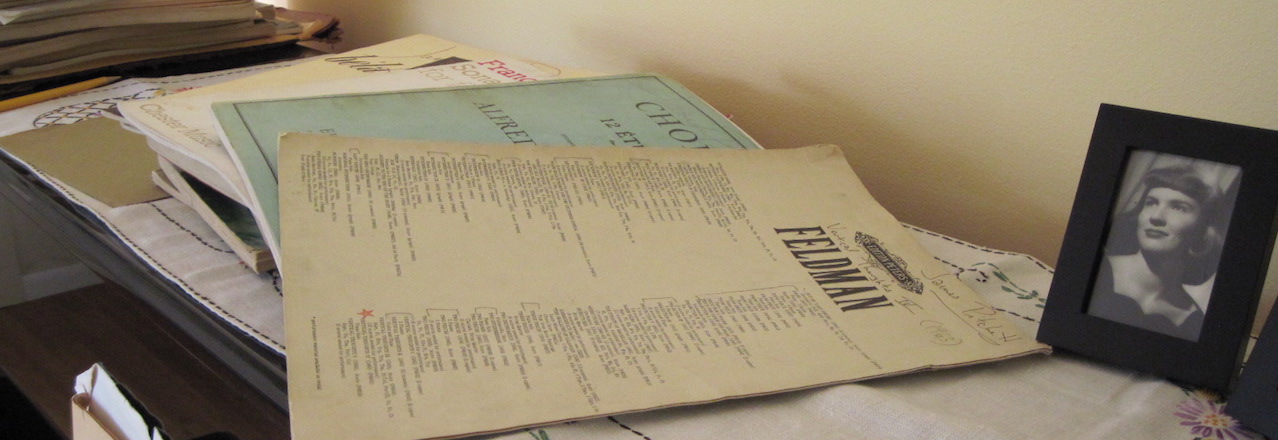Twice a week I do some very simple strength training at home (just lifting some free weights), and lately I’ve taken to listening to piano music while doing this. It gives me ideas of things I’d like to play, reminds me of repertoire I haven’t heard in awhile, etc. I’ve been working on those Rachmaninoff Preludes, so the other day I poked through Rhapsody to see if I could find some recordings that I could listen to for reference and for ideas. I found a recording of Sviatoslav Richter playing some, including the D major one that I’ve played.
I love Richter’s playing, and I was looking forward to the climax of the Prelude. I thought there would be a big sound and a sense of power to this “Rachmaninoff moment”, and there was, but what impressed me more was the ease with which he played it. This sense of ease seemed foreign to my playing, which sounded forced and strident in my mind as I listened to Richter. Where does that come from? Technical mastery is part of it, for sure, but that’s not the whole story.
I’ve since gone back and listened to the two performances again. Mine’s not as tense as I imagined it in my mind, and the sound isn’t as harsh as I was thinking it was. It’s partially a trick of memory, but also a reflection of the state of mind I often have when playing: leaning forward into the next thing, worrying about getting the notes right in that tricky bit, building up the story of the piece rather than allowing its unfolding. Listening to Richter, I see some technical things he’s doing differently: a faster tempo, less rubato, letting the lower and middle registers purl along more in the background. But I keep coming back to the attitude in the mind, this ease, this relaxed awareness.
There are times when it just happens of its own accord. I think that’s what’s behind that occasional experience of playing especially well after having not practiced at all for some days. I came back from vacation and the first time I sat down to play through things again, they all sounded so much better than usual. I’ve had that experience before. It’s counter-intuitive, this facility that arises when by all rights your fingers should be rusty and recalcitrant. But while the fingers may need some exercise, the mind is ready and not yet startled by the task in front of you.
I’ve thought of this in relation to meditation practice, in which the same problem occurs: how to cultivate ease of mind? There is no formula: you just learn to dwell there by practicing it. Christina Feldman teaches that we are always cultivating something, either consciously or unconsciously. Consciously we can choose to cultivate qualities such as calm and kindness, or we can unconsciously cultivate our habitual responses. The same may be true for ease in playing: I may just need to consciously cultivate ease by turning to it often.
And so lately I have been figuring out how to practice ease in my playing. It’s partly a matter of relaxing tempos (although I play the Rachmaninoff slower than Richter), but even more it’s relaxing my inner sense of tempo, especially at climaxes. I have always had a tendency to rush when I play, especially nearing difficult or stressful passages, and even more especially when playing in public. There’s a feeling in the mind of wanting to nail this passage, to be sure to get it right, to put across the big moment. Now I am recognizing that inner sense of desire, of anxiety, as the difficult passage approaches, as the climax starts to build. It is relaxing in the face of this that is required, and this is a skill that needs to be practiced as much as the finger work.

I appreciate your thoughtfulness always, but it was fascinating to read it in another dimension. I’m not sure if I can apply this philosophy to touch-typing on the IPod, but I love thinking about how I can apply it to my writing and to motherhood. Thanks very much for sharing it and the music as well.
Kristen